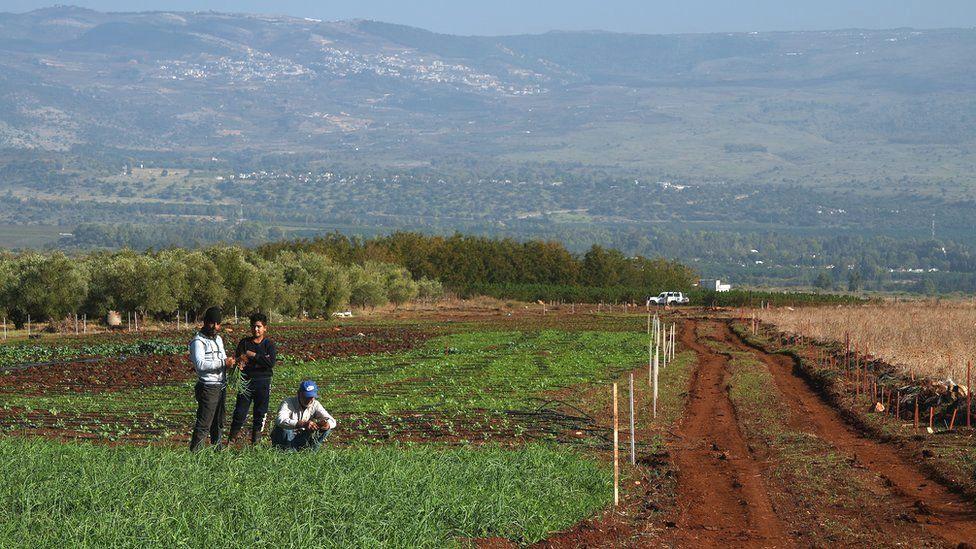
Beirut, Lebanon (Enmaeya News) — In just 100 days, the Ministry of Agriculture says it has started a new phase for Lebanon’s farming sector, guided by a full strategy led by Minister Nizar Hani. This new path is based on science, long-term partnerships, and rebuilding local and international trust in the role of agriculture in national development.
Six Pillars for Reform
The ministry’s strategy is built on six main areas. First, helping farmers restore their lands, especially in places affected by war, by offering technical help and financial compensation. Second, improving agricultural research, farmer guidance, and food safety by upgrading labs and putting stronger controls on food quality.
A third focus is on exports, agricultural diplomacy, and food security. The ministry has worked on opening new markets, building stronger ties with other countries, reviewing import systems, protecting local production, and adjusting trade deals to create fairer balance between imports and exports.
The fourth part of the strategy supports sustainable farming—plant, animal, and marine—while also adapting to climate change and protecting biodiversity. The fifth focuses on protecting natural resources by updating laws around forests, pastures, and fishing, and cracking down on environmental violations.
The sixth area is about improving farming infrastructure and bringing in innovation. This includes supporting value chains and improving life in rural areas by introducing technology and encouraging local initiatives.
Funding, Campaigns, and Community Engagement
The ministry said it was able to activate more than $280 million in foreign funding. Of that, $80 million came as direct grants to support ministry projects such as the Green Plan, the research department, and agricultural cooperatives. Another $200 million was secured as a development loan through the GATE program, which the ministry says is strong proof of international support for its reform efforts.
Over the past weeks, the ministry says it held 77 field seminars that reached over 2,750 farmers and made 15 visits to farming areas. It also produced 12 awareness episodes aired on Télé Liban and 12 digital guidance videos.
Key actions also included updating and unifying farmer guidance material, involving young Lebanese volunteers in planting 50,000 olive trees in the south, and launching a guidance app with the “Ezraa” platform.
Institutional Revival and Environmental Action
The ministry reactivated the board of the Agricultural Research Authority and the Green Plan’s executive committee and created a regulatory body for cannabis cultivation. It also formed specialized committees to organize different sectors such as fertilizers and farm drugs, beekeeping, wine and arak, food labs, olive oil, poultry, farming insurance funds, and dairy.
Efforts were also made to support contract farming and connect production with markets. Joint committees with neighboring countries were created to boost exports, and work began to make better use of public land. The ministry also strengthened partnerships with municipalities and civil society groups and launched a national call for farmers to register in the national agricultural database, aiming to organize the sector and ensure fairer access to support.
In terms of protecting the environment, the ministry declared a state of emergency for forests, started a national campaign to protect stray dogs and fight rabies, coordinated with security forces to protect marine life, and issued more than 55 billion LBP in fines for violations of local production rules.
Many international delegations and organizations visited the ministry, and technical and financial support agreements were signed. Field tours were also organized to study the real needs of local communities.
A national agriculture conference was held with the support and presence of the President of the Republic, in partnership with the Economic and Social Council. During the event, the ministry launched a promotional film and announced a plan to modernize its structure, improve digital systems, and strengthen governance.
The ministry also hosted the national days for agriculture and local products, with wide participation from the public and officials, to support the local market and rebuild trust between producers and consumers. These efforts are part of a larger vision for rural development.
The ministry said it has also started working on the National Agriculture Plan for 2026–2035 and is preparing a new investment plan for the sector.
“This is a ministry reborn,” the statement said. “A real strategic shift that brings agriculture back to the center of national policy, planting it once again as the pulse of the land and of life.”



